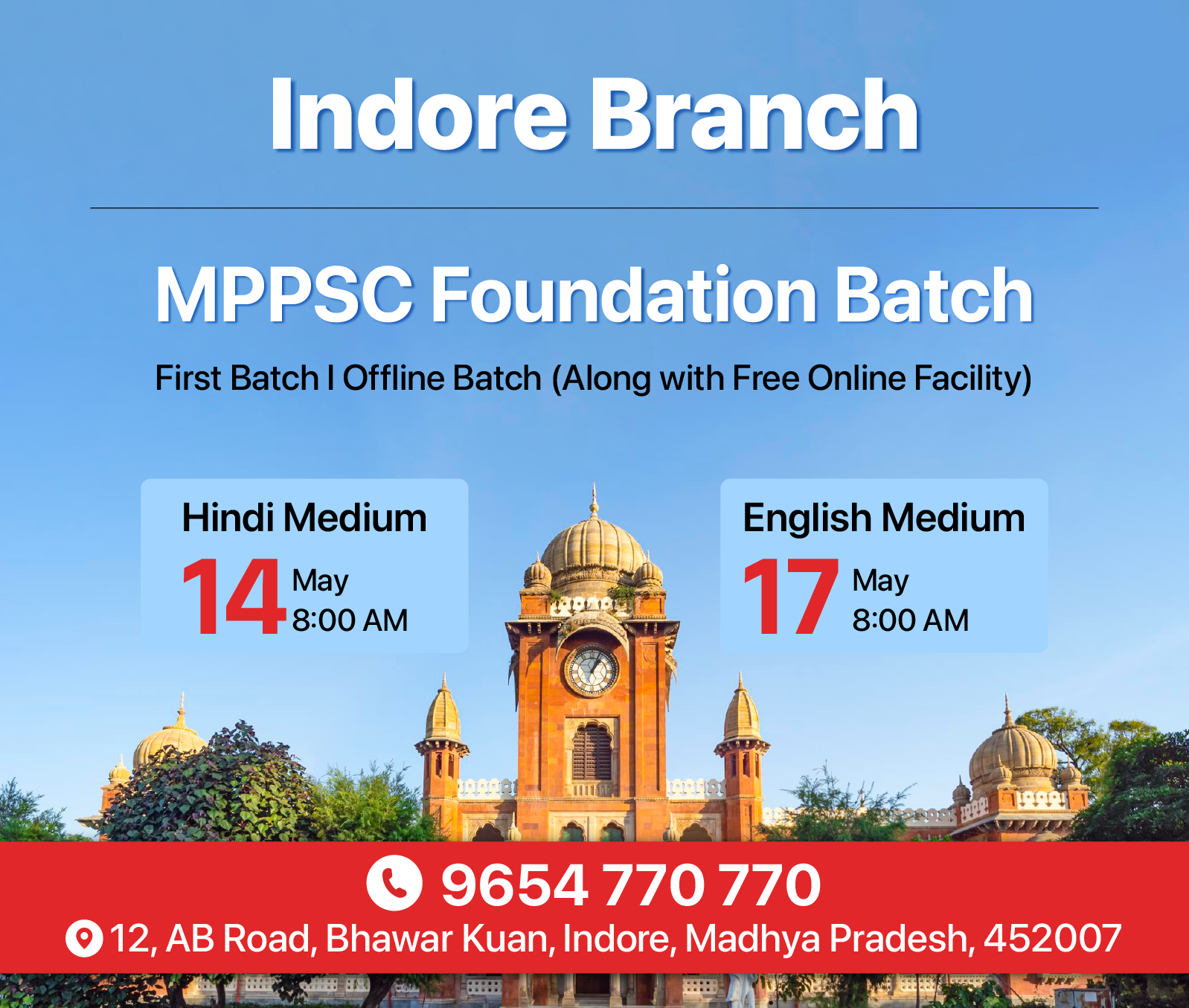Madhya Pradesh Switch to Hindi
New Flight Schedule to Boost Regional Tourism
Why in News?
Recently, the Madhya Pradesh government expanded air services routes to boost regional tourism and announced a new flight schedule for the PM Shri Tourism Air Service.
Key Points
- The scheme aimed at enhancing tourism and improving air connectivity, has announced a new scheme scheduled to start from 1st August 2024.
- The service will now incorporate cluster routes linking Khajuraho to Bhopal, Gwalior, Rewa and Singrauli.
- Flights from Bhopal and Jabalpur to Ujjain will be offered on Sunday, while services to Khajuraho will operate on Wednesdays, Thursdays and Saturdays.
- The state is classified into five regions-Gwalior and Chambal, Baghelkhand region, Bundelkhand region, Mahakaushal region, Malwa-Nimar region and Narmadapuram.
- The state government is set to host an ambitious 39th IATO (Indian Association of Tour Operators) Annual Convention in Bhopal to boost tourism in MP.
- This event is expected to draw over 1000 delegates, including tour operators, hoteliers, and other key stakeholders from across the country, promising to enhance both domestic and international tourism in Madhya Pradesh.
PM Shri Tourism Air Service
- The PM Shri Tourism Air Service was inaugurated on 13th june 2024.
- It is an intra-state air service that connects Madhya Pradesh's religious and tourist spots, aiming to improve connectivity for domestic and international tourists.


Madhya Pradesh Switch to Hindi
Toxic Waste Disposal of Bhopal Gas Tragedy
Why in News?
Recently, the Madhya Pradesh government decided to incinerate 337 Metric Tons (MT) of toxic waste from the Union Carbide facility, nearly 40 years after the Bhopal gas tragedy, 1984.
Key Points
- The central government has earmarked Rs 126 crore for the disposal of the waste.
- The disposal process is expected to be executed in 180 days, at the incinerator of the Treatment Storage Disposal Facility (TSDF) in Pithampur, Indore.
- The disposal process involves transporting the waste from the contaminated site to the disposal site, blending it with reagents, and then incinerating it.
- The Madhya Pradesh Department of Bhopal Gas Tragedy Relief and Rehabilitation (BGTRR) will oversee the disposal.
- Challenges and Concerns:
- The plan to incinerate the waste at the Pithampur TSDF has faced opposition from residents, leading to the suspension of further plans in 2015.
- A 2021 National Green Tribunal (NGT) report directed the remediation of the Solar Evaporation Ponds (SEPs) located north of the factory, indicating ongoing environmental contamination.
- The Solar Evaporation Ponds (SEPs) were used primarily to store low-level radioactive wastes contaminated with high concentrations of nitrate.
- Traces of heavy metals and other contaminants have been found in the borewell water around the site, exceeding acceptable limits.
- Social groups working for the rehabilitation of the gas tragedy victims have refuted claims about the safety of the incineration process, citing high levels of Dioxins and Furans detected during trial runs.
The Bhopal Gas Tragedy 1984
- The Bhopal gas tragedy was one of the worst industrial accidents in history that occurred on the night of 2-3 December 1984 at the Union Carbide India Limited (UCIL) pesticide plant in Bhopal, MP.
- It exposed people and animals to the highly toxic gas methyl isocyanate (MIC), causing immediate and long-term health effects and deaths.










%20MPPCS%202025%20Desktop%20E.jpg)
%20MPPCS%202025%20Mobile%20E%20(1).jpg)










.png)
.png)











 PCS Parikshan
PCS Parikshan

